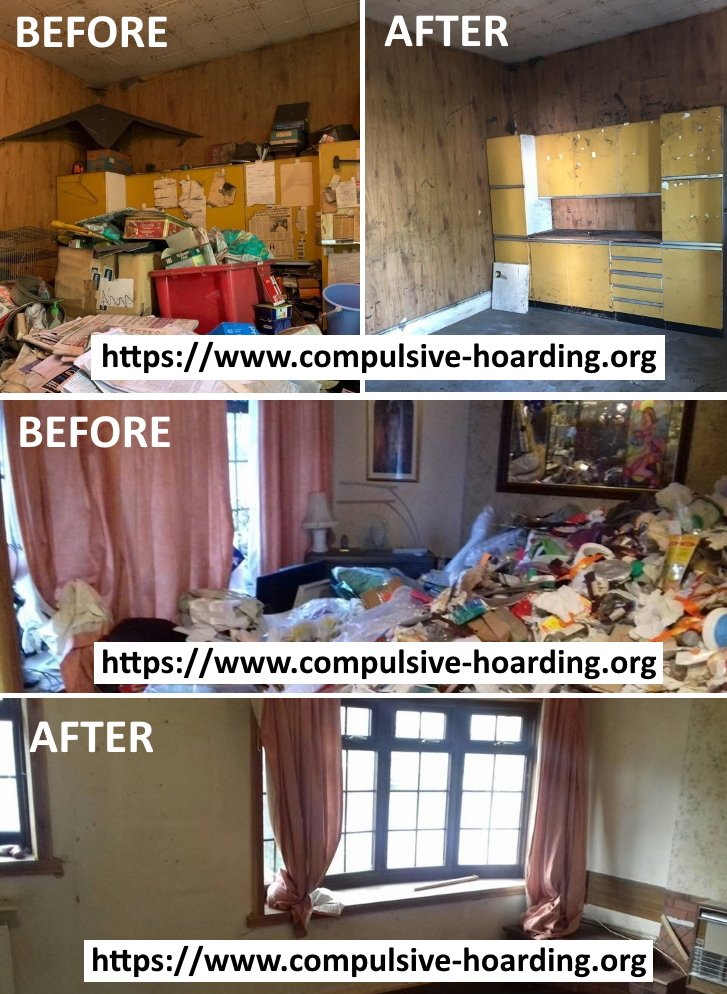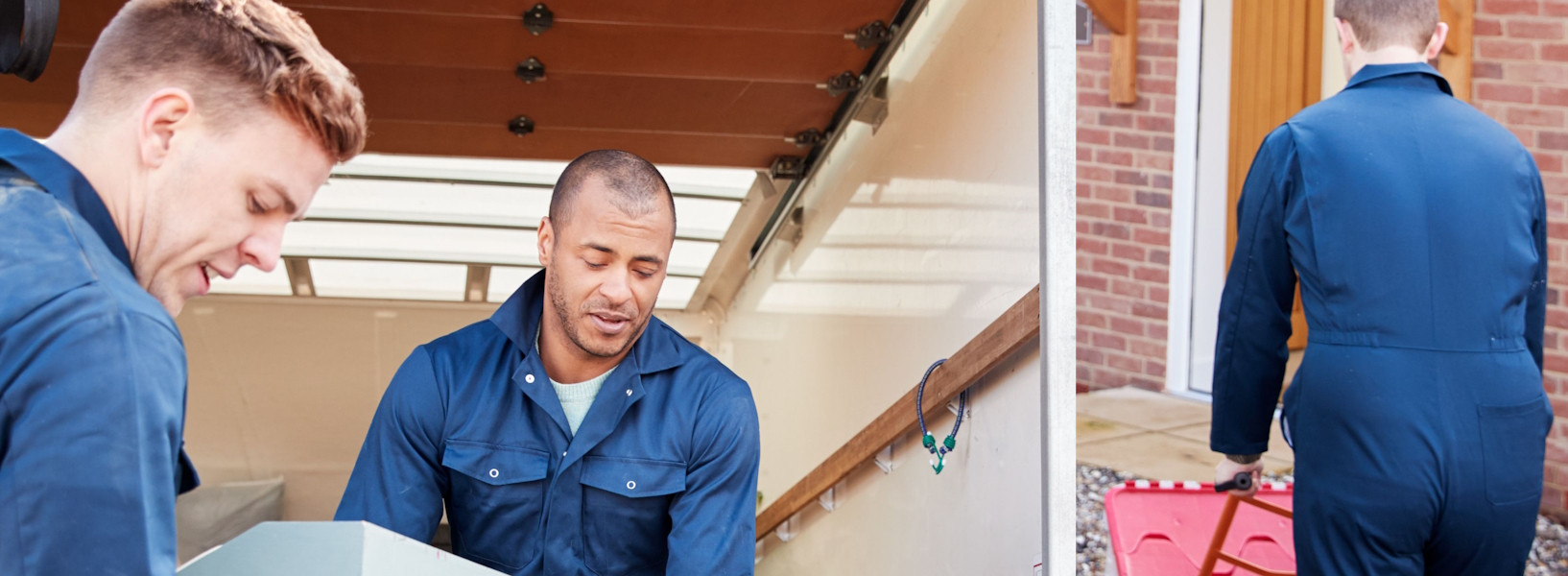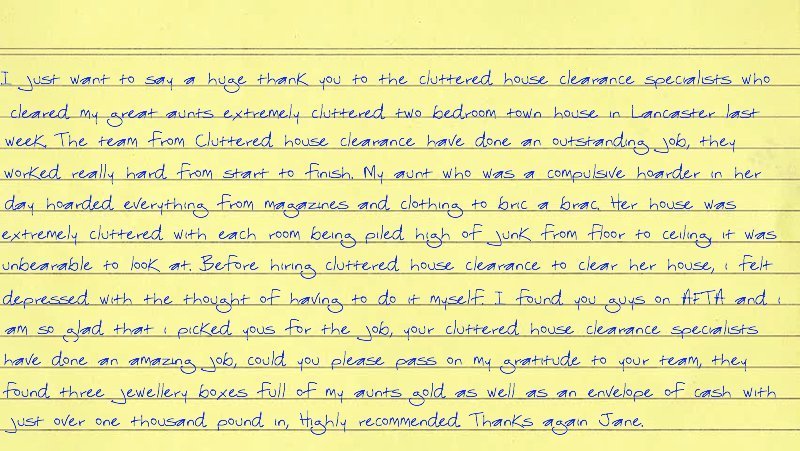
Question: My mom has always been a hoarder and it has progressively gotten worse. What can I do? Do I without her blessing clean her house for her? She says that she has no time. Where do I begin to help my mother?
Answer: This is one of the most common questions we hear. It’s terribly frustrating to see a loved one suffer from hoarding, especially when he/she doesn’t seem as bothered by it as you are, or is not as motivated to change things as you are. How can we make our loved ones see that this is a problem, get them to work on the clutter, or make them get the professional help they need? We need to remember that in most cases, we can’t make our loved ones do much. Assuming that your mother is an adult who is legally competent to manage her own affairs, and the clutter is not immediately life-threatening, she has the right to hoard, even though the hoarding might have terrible consequences for her quality of life and be extremely frustrating to you. Should you just clean out your mother’s house without her blessing? We generally recommend against doing so, for both legal and practical reasons. Continued near the bottom of this page.
Clearing a hoarder’s house? The Cluttered House Clearance Company offer professional compulsive hoarding clearing services in the UK. Specialists in cluttered hoarder house clearance.
Call us now to discuss your situation, let us tell you how our service works.
The Cluttered House Clearance company are fully licensed with the UK environment agency (Environment Agency Waste Carrier License NO #: CBDU284870), we are also members of AFTA.ORG.UK the Anti Fly Tipping Association
I just want to say a huge thank you to the cluttered house clearance specialists who cleared my great aunts extremely cluttered two bedroom town house in Lancaster last week. The team from Cluttered House Clearance have done an outstanding job, they worked really hard from start to finish. My aunt who was a compulsive hoarder in her day hoarded everything from magazines, clothing to bric a brac.
From the legal perspective, assuming that this is your mother’s house and her possessions, it would be illegal to take her things away without her permission or a court order. From a practical perspective, our experience has been that this approach rarely has the desired effect. Remember, hoarding is not just a house problem; it’s also a person problem. Cleaning up the house won’t do anything to help your mother overcome the psychological obstacles and deeply ingrained behavior patterns we know to be associated with hoarding. We have seen lots of examples in which family members or social service agencies cleaned out someone’s house, only to see it quickly become cluttered again— sometimes even worse than it was before!
It’s also important not to sacrifice the family relationship just to get the house clean, which the forceful approach would probably do. So a collaborative approach is much more likely to get you the results you want without damaging the relationship. The key to the collaborative approach is to alter the way you bring up the topic to minimize the likelihood of getting a defensive reaction. Often, it’s tempting to start arguing with the person, trying to persuade them to see things the way you do. This kind of direct confrontation rarely works.
We find that the best way to help people increase their motivation to work on the problem is to start with three key assumptions:
- 1. Ambivalence is normal.
- 2. People have a right to make their own choices.
- 3. Nothing will happen until the person is ready to change.
1. Show Empathy. Showing empathy doesn’t necessarily mean that you agree with everything the person says. But it does mean you are willing to listen and to try to see things from the other person’s perspective.
2. Don’t Argue. There is simply no point in arguing about hoarding. The harder you argue, the more the person is likely to argue back. The only solution is to get out of the argument.
3. Respect Autonomy. Remember, most of you are dealing with an adult who has freedom of choice about his or her own possessions. Try to engage your loved one in a discussion (rather than an argument) about the home and his or her behavior. Ask your loved one what he or she wants to do, rather than just telling him or her what you want: “What do you think you would like to do about the clutter in the home?” “How do you suggest we proceed?”
4. Help the person recognize that his/her actions are inconsistent with his/her greater goals or values. Ask the person about his or her goals and values. “What’s really important to you in life?” “How would you like your life to be five years from now?” “What are your hopes and goals in life?” Discuss whether the person’s acquiring or difficulty organizing or getting rid of things fit with those goals and values. This is most effective if you ask, rather than tell. “How does the condition of your home fit with your desire to be a good grandmother?” “You’ve told me that friendships are very important to you; how well can you pursue that goal, given the way things are right now?”
FREE Hoarded House Clearance Asset Recovery Service…
Our pre house clearance asset recovery service is 100% FREE. If we find NOTHING in the property then we ourselves expect nothing, no charges, no fees. We only get paid if we locate items of value and of course if you ask us to undertake the actual clearance after the search has been completed.
Please take a minute or two to read our page about our FREE Hoarded Houses Clearance Asset Recovery Service.





